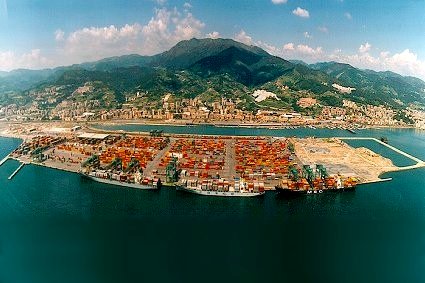The devastating storm has brought Central and Eastern Europe to its knees, claiming at least 21 lives and leaving a trail of destruction and thousands of displaced people. The hardest-hit areas include Austria, the Czech Republic, Slovakia, Hungary, Romania, and southwestern Poland, with disruptions reaching as far as Germany and Moldova. While the storm has slightly eased in recent hours, the damage reports continue to come in. The floods have caused untold damage, affecting all sectors, from energy and industry to agriculture and transport.
Poland has declared a state of emergency, with the government appealing to the European Union for aid in managing the disaster. A significant portion of the Polish-Czech border remains underwater, paralyzing road and rail traffic. In the Opole Voivodeship, floodwaters have severely damaged several bridges under renovation, completely halting traffic to the Czech Republic.
The Kudowa-Słone border crossing is still passable but heavily congested, prompting authorities to ban heavy vehicles. On the Czech side, the D1 highway near Ostrava is submerged for several kilometers, with flooding reported on three major arteries connecting the Czech Republic and Poland. Rail infrastructure has also been hit hard, and PKP, Poland's rail network operator, has set up a monitoring team to manage the crisis and assess the evolving situation.
"We are on the ground, continuously monitoring the situation, and will keep you updated on next steps. PKP Polskie Linie Kolejowe staff are constantly inspecting infrastructure in flooded areas, and the main lines are passable. Traffic will be gradually restored, and once the water recedes and tracks are cleared, a site inspection will determine whether repairs are needed or if operations can resume with speed restrictions," PKP said in a statement.
Currently, rail services in Poland are suspended on five national routes, while 21 lines have already been restored. The Opole-Brzeg section is experiencing significant delays due to power supply issues caused by damage to high-voltage pylons. Across southern Poland, 96 trains have been canceled, 66 are operating on reduced routes, and 116 trains have experienced delays of up to 1,280 minutes. At least four locomotives were completely submerged by the floods, and PKP will send engineers to inspect them once the water has fully receded.
Rail connections with the Czech Republic have also been affected by Storm Boris. Restrictions remain in place, particularly around Ostrava, with areas completely closed to traffic in both directions. Tracks have been torn up, stations are unusable, and electrical lines are down. According to PKP, restoration work will not be completed before September 22. However, there have been no reported issues on lines connecting Poland and Slovakia.
In Romania, severe weather has impacted 19 areas across eight districts, felling numerous trees, blocking many major roads, and damaging bridges and railways. Flooding has primarily affected rural areas, but the situation was brought under control on Sunday, September 15. In Slovakia, the Danube River overflowed, causing flooding in the capital, Bratislava, though the damage appears less severe compared to other European regions.
In Austria, the 400-kilometer stretch between Vienna and Salzburg has been closed to both road and rail traffic, and in the country’s south, red alerts have been issued for landslide risks due to premature snowfall. Vienna's subway system was flooded and has been declared out of service. Rail links to Germany and Eastern Europe have been entirely suspended, and freight transport is halted nationwide.
After days of chaos, the storm has begun to weaken in Central Europe, but attention is now shifting to Italy. In the coming hours, Storm Boris is expected to reach Italy, with weather warnings issued for Veneto, Emilia-Romagna, Tuscany, and Lazio. Low pressure is expected to affect much of the country, bringing heavy rains, thunderstorms, and strong gale-force winds.
Marco Martinelli

































































